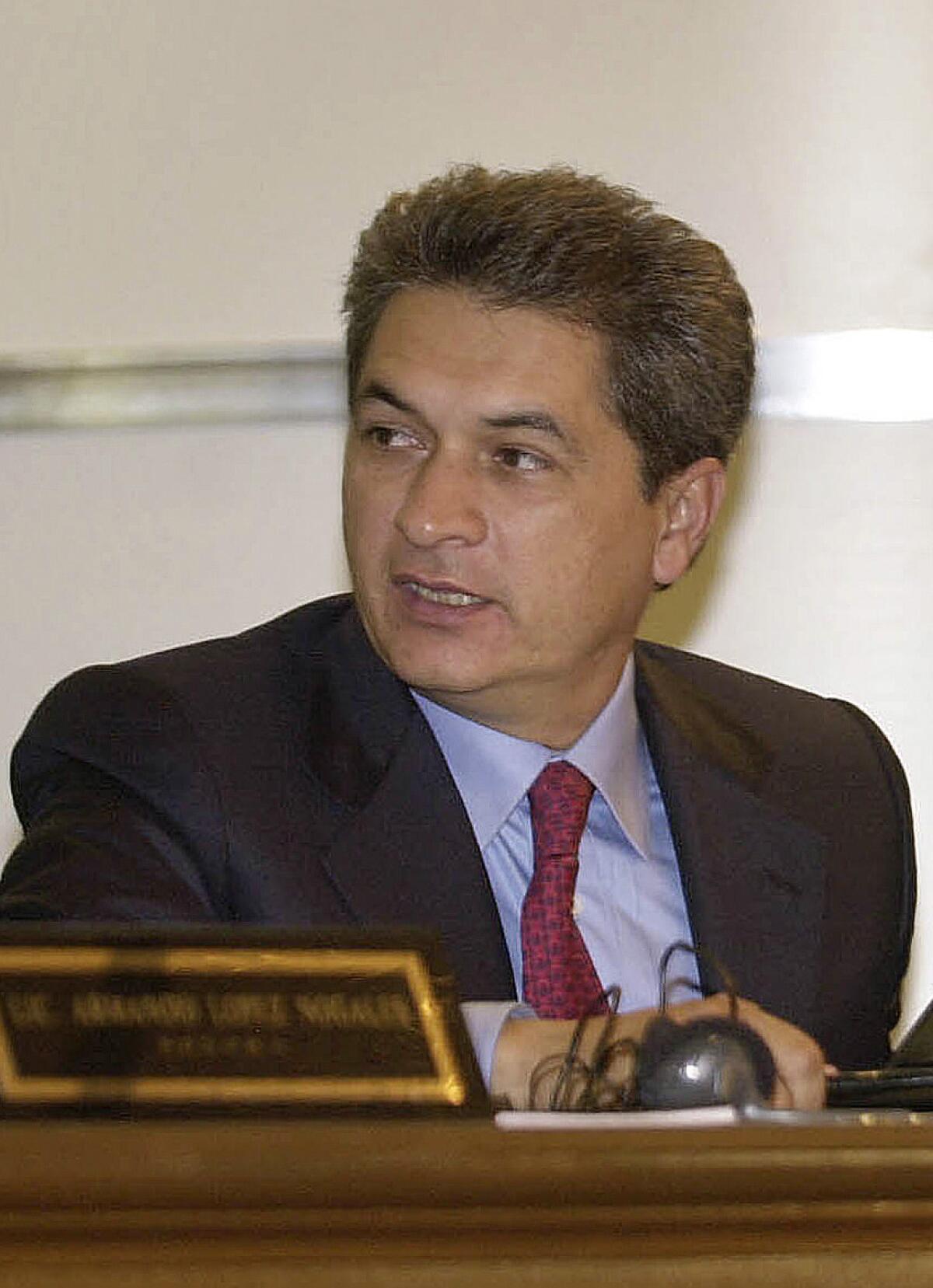Former Mexican governor indicted by U.S. on drug trafficking charges

MEXICO CITY -- He allegedly raked in millions of dollars to give drug traffickers easy access to the United States. The cocaine flowed north, prosecutors say, and the money in his pocket bought him elegant houses and a couple of private jets.
Tomas Yarrington, former governor of the Mexican border state of Tamaulipas, has been indicted by U.S. federal prosecutors on a host of drug-trafficking, money-laundering and racketeering charges.
He is one of the highest-ranking former Mexican officials whom the United States has attempted to prosecute in many years. And the case could pose yet another touchy problem between the two nations, even as they reassess their relationship after the ascension a year ago of a new, less-U.S.-friendly Mexican administration.
The accusations also highlight the deep penetration of drug-cartel corruption in state governments, especially along the border. Tamaulipas touches the southern tip of Texas.
Yarrington, who was governor of Tamaulipas from 1999 to 2004 and was also a one-time presidential hopeful, has repeatedly professed his innocence. Similar accusations have dogged him for a year or more and at one point threatened to cloud the electoral campaign of President Enrique Peña Nieto. Peña Nieto, elected last year, and Yarrington both hail from the same Institutional Revolutionary Party, or PRI.
In the indictment unsealed Monday, Yarrington is portrayed as an old-style PRI politician, for whom being cozy with drug traffickers was the way to do business.
Starting in 1998, âYarrington received large bribes from major drug traffickersâ in Tamaulipas, including the then-dominant Gulf Cartel, the U.S. attorneyâs office of southern Texas said in a statement. The bribes began as he campaigned for governor, continued through his six-year term and afterward, the statement says.
In return, prosecutors allege, Yarrington âallowed them to operate their large-scale, multi-ton enterprises freely, which included the smuggling of large quantities of drugs to the United States for distribution.â
The indictment also alleges that Yarrington, 56, took bribes from local businesses and skimmed public money as well to pad his private accounts.
With suspected accomplice Fernando Cano, a builder, Yarrington then acquired numerous âvaluable assets,â mostly across Texas, including homes, airplanes, bank accounts, vehicles and other real estate, worth around $7 million, the indictment states.
The 11-count indictment was returned in May, but for reasons not explained, was not opened until this week. It says Yarrington eventually became involved in the smuggling of drugs.
Like many politicians in Tamaulipas, Yarrington âabetted, enabled and profited from a symbiotic relationship with the Gulf Cartel,â said George Grayson, a Mexico expert at Virginiaâs College of William & Mary.
Yarringtonâs whereabouts are unknown, although his attorneys insisted this week that he is not a fugitive. The U.S. government has not yet formally sought his extradition. Mexican Atty. Gen. Jesus Murillo Karam said: âWhoever they ask us to look for, we will. They have had and will continue to have our cooperation.â
In fact, there are already bruised feelings over the release from prison last summer of notorious drug lord Rafael Caro Quintero, convicted in the 1985 murder of an American federal agent and suspected in the killings of several other Americans.
In addition, Peña Nietoâs PRI government has sought to create distance from its U.S. partners in an effort to portray itself as a more independent and self-reliant administration.
Yarringtonâs Houston-based attorney, Joel Androphy, said in a news conference this week in Mexico City that the allegations against Yarrington were bogus and based on âfalse witnesses and testimonyâ by people attempting to make deals with the prosecution.
He refused to disclose Yarringtonâs current location, except to repeat that he was in the United States a year ago when asked to leave because his visa had expired.
Accusations that Yarrington was receiving drug money first surfaced early last year, in connection with a U.S. case involving an associate, and then in a Mexican investigation. The PRI, in the middle of an election campaign, suspended him. Then-Atty. Gen. Marisela Morales ordered him arrested. But he managed to secure an injunction that left him free, and he threatened to take on the attorney general.
Although state governments are thought to be notoriously complicit in drug-trafficking operations, only a handful of officials have been brought to account. In May 2010, Mexico extradited to the United States the former governor of Quintano Roo state, where Cancun is located, on drug-trafficking charges. Mario Villanueva pleaded guilty and is serving a 10-year jail term.
ALSO:
Girlâs attack on toddler jolts China
Former Russian defense minister charged in corruption case
Friends, students reminisce about teacher slain in Benghazi, Libya
More to Read
Sign up for Essential California
The most important California stories and recommendations in your inbox every morning.
You may occasionally receive promotional content from the Los Angeles Times.











